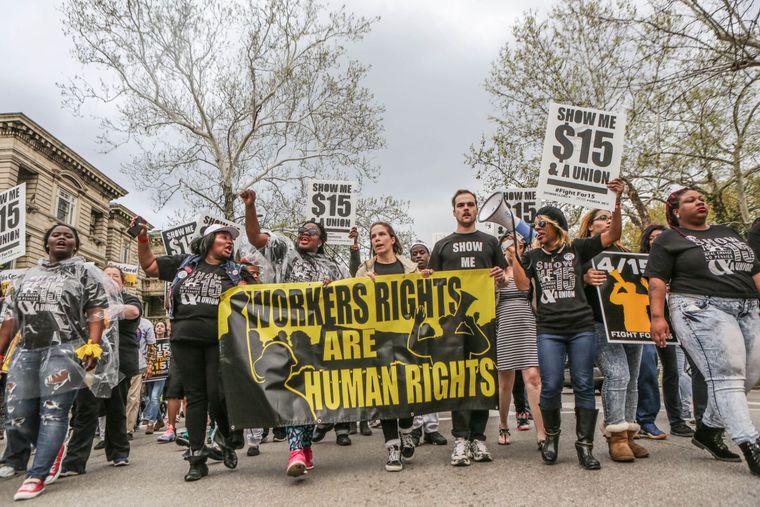Posted St. Louis American on September 3, 2015
Last week, the bill to increase the minimum wage from $7.65 to $11 by 2018 squeaked into existence with 16 aldermanic votes. The six nay votes of South City, mainly conservative alders included a lone African-American alderman, Antonio French.
Alderman Shane Cohn, the bill’s sponsor, made a passionate presentation at the Board of Alders’ special session on the importance the increase would have for working families. Proponents were desperate to get the local bill passed because the Missouri General Assembly passed a state law prohibiting cities’ minimum wage to exceed that of the state’s. The state law was vetoed by Gov. Jay Nixon. Regardless of the majority wishes of the City of St. Louis, the bill could be trounced by the Republican super-majority during the state legislative special session this month.
The hotly debated bill went through several versions to address both aldermanic concerns and those from the broader community. A $15 hourly raise by 2020 was enthusiastically favored by labor, community activists and faith leaders. Then it went to $13 by 2020. As it sits now, the first increase for the city’s minimum wage will kick in on October 15 at $8.25. Incremental increases would happen every year until 2018, when I’m sure living expenses would have caught up with the increase since there’s no built-in Cost of Living Adjustment (COLA).
The six opponents of the minimum wage pointed to several reasons why the bill should not see the light of day. Most of them were old, worn-out scare tactics like businesses would leave the city in droves, right into the open arms of St. Louis County which has refused to raise its wage. Never mind that over half of the states in the country have adopted minimum wages higher than the federal rate of $7.25 and the sky is still intact.
And let’s not forget the businesses that allegedly would be forced to close their doors and throw their employees onto the unemployment rolls.
The opponents reminded us that St. Louis is not a big city anymore, that we can’t compete with Clayton. (That’s the competition?) This reality has been in place for a while. The last U.S. Census year that the city didn’t show a loss of population was 1950.
The most ridiculous reason I heard was that poorer neighborhoods would have a hard time attracting businesses if there was an increase in wages. And you’re trying to tell us businesses were flocking to the hood to hang their shingles before the vote?
What we need, they say, is not an increase in the minimum wage but an increase in jobs. Now we may be getting somewhere, because we need those too – it’s not an either/or situation. So, when was the last time the Board of Alders passed a jobs bill? Have you checked out a jobs plan by the St. Louis Regional Chamber that worked so hard to defeat the bill?
The fact that opponents are comfortable with low-paying jobs, especially from high-earning companies, speaks volumes about whose interests they represent. We can make the city a mecca for jobs with livable wages. This is what will attract forward-thinking businesses and residents to St. Louis, not a place where poverty and plantation politics are accepted as the norm.
I look forward to the day when we stop fighting over the minimums and start advocating for the maximum standard of living for all citizens.




